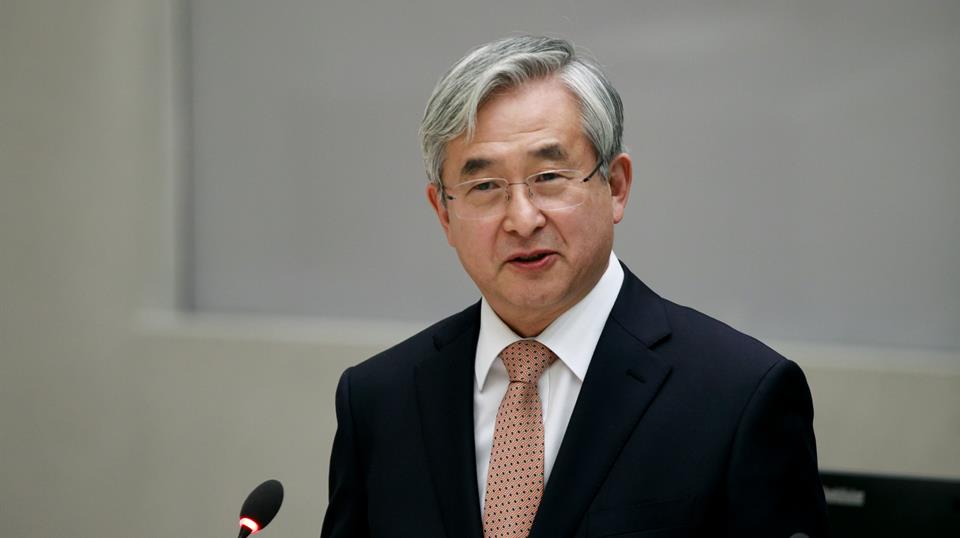Headline
ICC official ready to fly to PH to talk with gov’t officials

In an interview with ANC, O-Gon Kwon, head of the ICC’s management oversight and legislative body, reiterated his appeal to the Philippines to remain as a state party to the Rome Statute, saying that it would negatively impact the “global efforts to fight impunity.” (Photo: International Criminal Court)
The president of the Assembly of States Parties to the Rome Statute on Monday, March 19, said he is ready to visit the Philippines to open a discussion with government officials after President Rodrigo Duterte announced its decision to withdraw the country from the International Criminal Court (ICC).
In an interview with ANC, O-Gon Kwon, head of the ICC’s management oversight and legislative body, reiterated his appeal to the Philippines to remain as a state party to the Rome Statute, saying it would negatively impact the “global efforts to fight impunity.”
“One thing I can add is I’m ready to fly to Manila to engage in dialogue with any authorities of the Philippines’ government, and have open debate, if feasible and necessary, anytime,” Kwon said.
“I find it regrettable if the Philippines does indeed withdraw from Rome Statute because it will impact negatively on the global efforts to fight impunity for the most serious crimes, to prevent atrocities and bring justice to the victims,” he added.
Presidential Spokesperson Harry Roque, however, said that it is “too late” for the ICC official to talk to Filipino authorities, as the government has sent a formal notice to the United Nations (UN) regarding its decision.
Sought for further information, the spokesman said he will discuss more regarding Kown’s pronouncements in his news conference to be held on Tuesday, March 20.
Last week, Duterte announced his decision to pull out the country’s signature from the Rome Statute, a treaty which established the ICC, just as the international body began its preliminary review of the charges against the Chief Executive in connection to his controversial drug war.
Roque said that it was “unacceptable” that the tribunal body violated the “principle of complementarity” by starting a preliminary examination into crimes allegedly committed under the administration’s war on drugs. He noted that the ICC can only exercise jurisdiction over a person if the local courts are unable to or unwilling to act on a case.
“Ang nangyari po rito ay para bagang hindi gumagana ang ating mga hukuman sa Pilipinas kaya nagsimula ng preliminary examination. Iyan po ay hindi katanggap-tanggap dahil labag ito doon sa consent na ating ibinigay para maging miyembro tayo ng ICC (What happened here is the courts in the Philippines were supposedly not moving that is why a preliminary examination was started. That is unacceptable because it violated the consent we gave to become a member of the ICC),” the Palace official explained.
“Insulto po iyang ginawa ni prosecutor na kinondena niya ang ating hukuman na para bagang inutil dahil gagana lang naman ang ICC kung ang lokal na mga procedure at mga hukuman ay inutil doon sa mukha ng impunity (The action of the prosecutor was an insult because she condemned our courts that were supposedly useless because the ICC will only act if the local procedures, courts are inutile in dealing with impunity),” he stressed, referring to ICC prosecutor Fatou Bensouda who earlier announced the review into the drug war.
The spokesperson insisted that the tribunal body was not the court of first instance but the court of last resort.





















